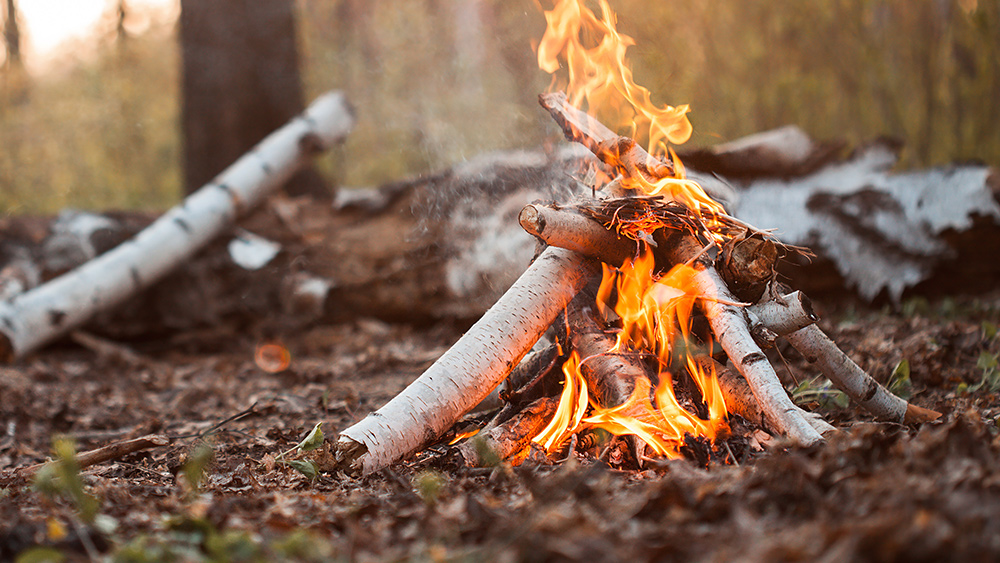NASA can only give a warning 30 minutes before a killer solar storm, so PREPARE before SHTF
05/31/2023 / By Zoey Sky

According to an alarming National Aeronautics and Space Administration (NASA) study, the space agency can only give a warning 30 minutes before a “killer solar storm” hits the Earth.
If you don’t have your supplies ready, 30 minutes is probably not enough time to prepare for a killer solar storm that could knock out the internet and power for several hours.
Predicting solar storms with the help of AI
Back in March, NASA announced the development of its computer model called DAGGER, or Deep Learning Geomagnetic Perturbation, and the research is now gaining public traction. (Related: Lost in space: Solar storm destroys 38 Starlink satellites, costing Elon Musk’s company tens of millions in losses.)
An international team of researchers at the Frontier Development Lab – a public-private partnership made up of experts from NASA, the U.S. Geological Survey and the Department of Energy – have been using artificial intelligence (AI) to look for connections between the solar wind and geomagnetic disruptions or perturbations that can negatively affect modern technology.
The researchers applied an AI method called “deep learning” to help train computers to recognize patterns based on previous examples.
They also used the technology to identify links between solar wind measurements from heliophysics missions. These missions are probes strategically placed throughout space to create a large network of sensors that work together to study the sun.
The team tested DAGGER against two geomagnetic storms in August 2011 and March 2015.
According to the researchers, DAGGER “could quickly and accurately forecast the storm’s impacts worldwide in each case.”
Vishal Upendran, the study’s lead author from the Inter-University Center for Astronomy and Astrophysics in India, explained that they can use the AI to “make rapid and accurate global predictions and inform decisions in the event of a solar storm, thereby minimizing – or even preventing – devastation to modern society.”
Solar storms can make global positioning systems (GPS) less accurate, which could be a major issue for precision drilling and other technologies. They could also cause GPS outages.
Additionally, a killer solar storm can cause communication problems and add radiation around the North and South Poles, which could then force airlines to reroute flights. Some killer storms have already done so.
Back in 1859, a massive geomagnetic super-storm called the Carrington Event sent powerful coronal mass ejections toward Earth, disrupting communications.
And if a similar event happened today, the effects would be catastrophic.
Tips for preparing before a solar storm
The National Oceanic and Atmospheric Administration (NOAA) shared tips that can help you prepare for an extreme solar storm:
Solar flares could knock out the power supply. This means TVs, video games and computers won’t work. If you have children at home, keep them entertained with toys and board games. Keep the adults entertained with playing cards, books and puzzles.
Stock up on emergency candles, matches, flashlights or headlamps and extra batteries so you can see what you’re doing at night.
If someone at home has health issues, don’t forget to stock up on their medications. You should also prepare a first aid kit with lots of supplies, along with over-the-counter (OTC) medicines that will be impossible to get when local stores are sold out or looted after society collapses.
If there is enough space in your supply room, stock up on drinking water for your whole family. And if you are worried that your water supply could eventually run out, find other sources of water and stock up on different methods to purify water, like bleach, iodine or water filters.
Before disaster strikes, find an efficient way to harvest water from these supplemental sources and practice how to properly purify water on your own.
When preparing for an emergency, stock up on basic, non-perishable food so you can feed your family as you all try to survive the aftermath of a solar storm.
Here are some suggestions on what to stock up on for your emergency food supply:
- Canned broth or soup
- Canned fruit
- Canned meat (Chicken, salmon, tuna, etc.)
- Canned vegetables
- Condiments and spices
- Cooking oil
- Oats (at least 4 pounds)
- Pasta and cans or jars of spaghetti sauce
- Peanut butter
- Powdered milk (at least 5 pounds)
- Salt (at least 5 pounds)
- Rice (at least 20 pounds)
Fill plastic containers with water and place them in the freezer to keep refrigerated food cold after a power outage. The ice in the containers will melt eventually, so you can also use the water for drinking.
If you have a car, make sure you always keep the gas tank at least half full since gas stations need electricity to power their pumps.
If you have a garage, find the manual release lever of your electric garage door opener and learn how to operate it. Garage doors can be heavy, so you may need help to lift them once the power goes out.
Make sure you always have your house keys so you can still enter your house even if you’re unable to open the garage door.
Purchase a solar-powered or hand crank charger so you can charge your smartphone. These devices can also be used to charge your laptop and other small electronics during a power outage.
If you have a car, buy a car phone charger so you can still charge your phone if you lose power in your home.
If you still use a traditional landline (non-broadband or VOIP) phone, keep at least one non-cordless receiver in your home. The phone will work even if you lose power.
Prepare a family contact sheet. Make sure you include at least one out-of-town contact who can help reach family members in case of an emergency.
Make backup copies of important digital data and information, like IDs or passports and other documents.
Keep money somewhere in your house because banks and ATMs will not be available due to power outages. You will need the emergency money to buy more food and supplies after a solar storm.
Visit Preparedness.news for more stories like this.
Watch the video below to learn about 10 mistakes to avoid as you prepare for a solar storm and other emergencies.
This video is from the Daily Videos channel on Brighteon.com.
More related stories:
FEMA internal report: US power grid may not be able to handle a solar storm.
GPS-dependent America is one solar storm away from collapse.
Earth just dodged a potentially apocalyptic-level solar storm – are we safe?
Sources include:
Submit a correction >>
Tagged Under:
chaos, Collapse, coronal mass ejections, cosmic, disaster, geomagnetic storm, global positioning systems, GPS, panic, preparedness, prepper, prepping, radiation, SHTF, solar cycle, solar flares, solar storms, space, space weather, sun, survival, tips
This article may contain statements that reflect the opinion of the author
RECENT NEWS & ARTICLES
COPYRIGHT © 2017 GEAR.NEWS
All content posted on this site is protected under Free Speech. Gear.news is not responsible for content written by contributing authors. The information on this site is provided for educational and entertainment purposes only. It is not intended as a substitute for professional advice of any kind. Gear.news assumes no responsibility for the use or misuse of this material. All trademarks, registered trademarks and service marks mentioned on this site are the property of their respective owners.




















